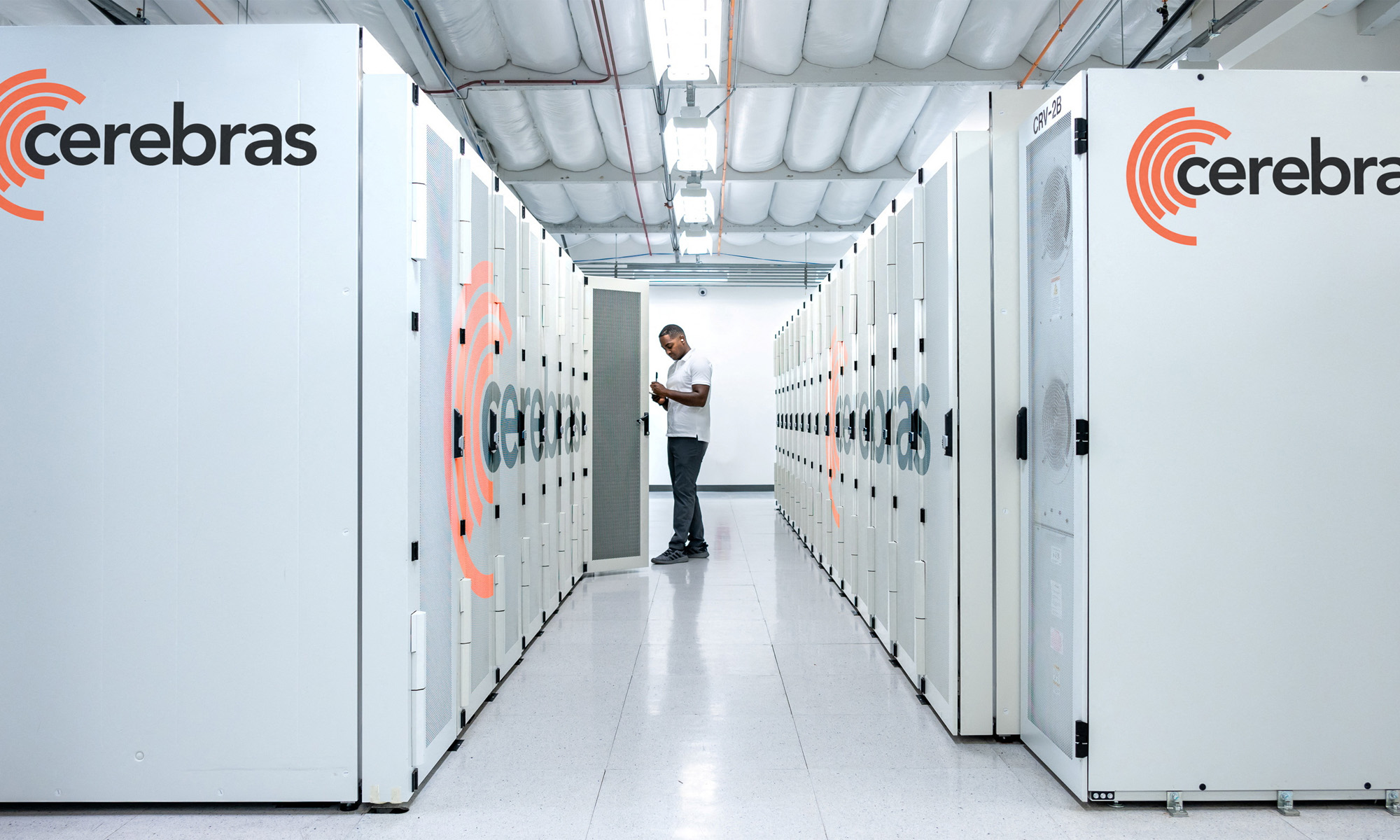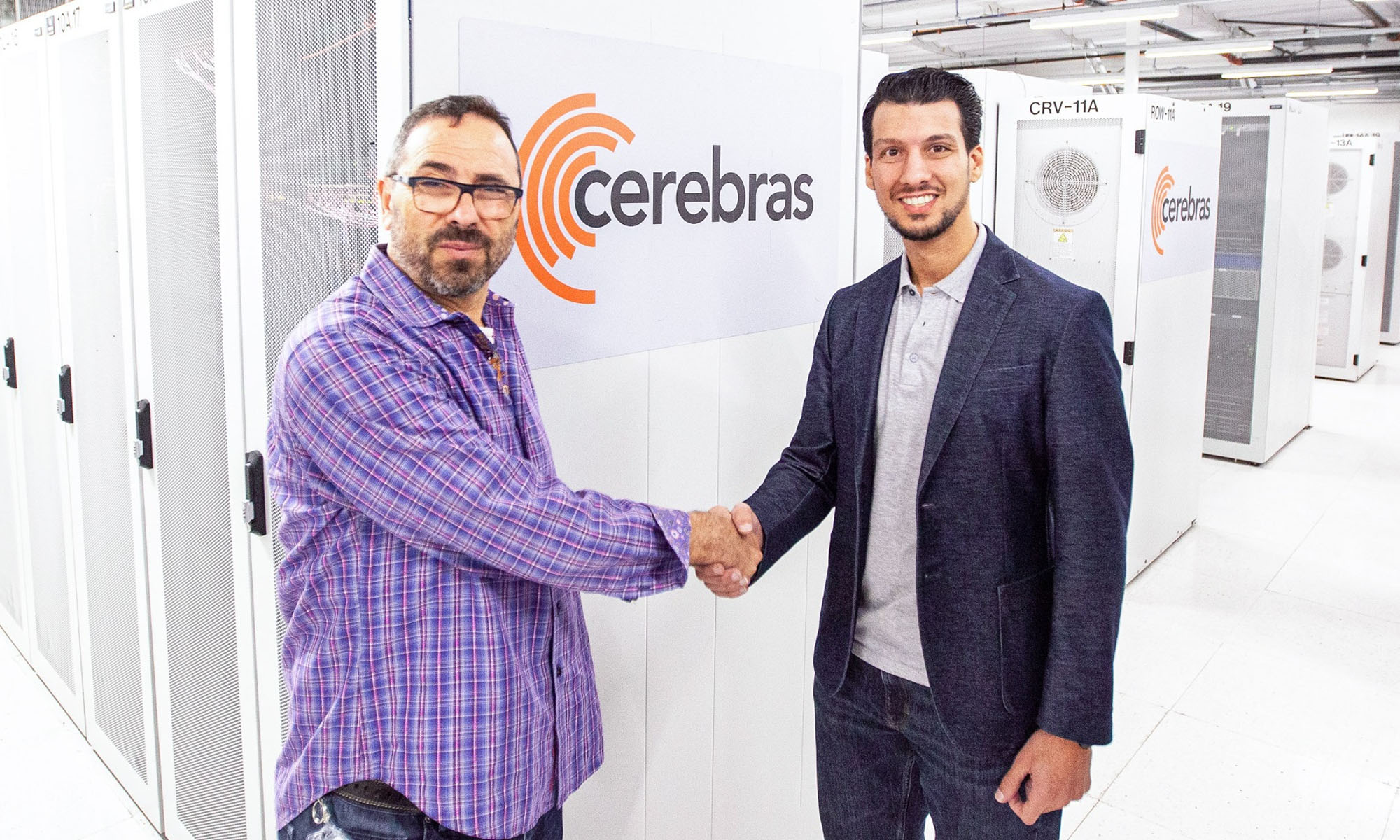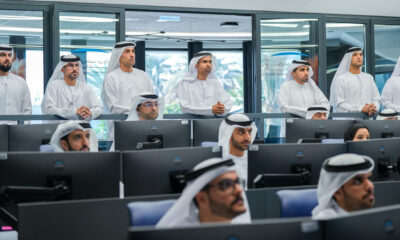News
UAE-Based G42 Partners On World’s Fastest AI Supercomputer
The machine, named Condor Galaxy, has been built to assist with generative AI projects and is over 20 times faster than its predecessor.

Condor Galaxy, the world’s “fastest AI training supercomputer”, has been built with assistance from G42, a UAE-based technology holding group. The machine is actually a network of nine interconnected AI supercomputers developed by US-based AI company Cerebras Systems.
Located in Santa Clara, California, the massive machine boasts 4 exaFLOPs of power and a staggering 54 million cores that will significantly reduce AI processing times.
G42 will use Condor Galaxy to train AI models across a variety of data sets and has already created and tested Arabic bilingual chat, healthcare, and climate study applications.
“Collaborating with Cerebras to rapidly deliver the world’s fastest AI training supercomputer and laying the foundation for interconnecting a constellation of these supercomputers across the world has been enormously exciting,” said Talal Alkaissi, CEO of G42 Cloud. “The partnership brings together Cerebras’ extraordinary compute capabilities, together with G42’s multi-industry AI expertise,” he added.

Training the latest AI models requires enormous computing power and specialized programming skills. ChatGPT, for example, relies on 175 billion parameters and uses 10,000 Nvidia GPUs to train its AI algorithms.
Condor Galaxy brings genuine innovation to these kinds of processes, as all computing is performed entirely without complex distributed programming languages. This means that large projects no longer require weeks or even months spent distributing work over thousands of GPUs.
Also Read: Best Web Hosting Providers In The Middle East
“Many cloud companies have announced massive GPU clusters that cost billions of dollars to build but are extremely difficult to use. Distributing a single model over thousands of tiny GPUs takes months from dozens of people with rare expertise,” noted Andrew Feldman, CEO of Cerebras Systems. “CG-1 eliminates this challenge. Setting up a generative AI model takes minutes, not months, and can be done by a single person” he added.
The G42 and Cerebras partnership marks another step toward the democratization of AI. The combination of massive computing power and unique AI data sets should produce groundbreaking results and turbocharge hundreds of AI projects around the world.
News
Alienware Just Announced Six New Gaming Monitors
The new models include three QD-OLED and three budget-friendly QHD options, expanding the company’s lineup for all gamers.

Alienware has just updated its gaming monitor lineup with six new additions, including the highly anticipated Alienware 27 4K QD-OLED Monitor. The latest wave of releases is set to reach more gamers than ever, offering high-end QD-OLED displays alongside more budget-friendly options.
The latest displays clearly show that the company is doubling down on QD-OLED with three new models sporting the technology. A redesigned Alienware 34 Ultra-Wide QD-OLED Monitor is also making a return, further refining what is already a fan-favorite display.
A Unified Design: The AW30 Aesthetic
All six monitors feature Alienware’s new AW30 design language, first introduced at CES. The AW30 aesthetic brings a futuristic, minimalist look that unites the entire lineup under a cohesive visual identity.
Pushing QD-OLED Even Further
The refreshed Alienware 34 Ultra-Wide QD-OLED Monitor (AW3425DW) builds on its predecessor’s success with a 240Hz refresh rate (up from 175Hz) and HDMI 2.1 FRL support. It also gains G-SYNC Compatible certification alongside AMD FreeSync Premium Pro and VESA AdaptiveSync, ensuring ultra-smooth performance. With a WQHD (3440×1440) resolution and an 1800R curve, this display enhances immersion for both gaming and cinematic experiences.
For those who crave speed, the Alienware 27 280Hz QD-OLED Monitor (AW2725D) pairs a high refresh rate with QHD resolution, balancing sharp visuals with ultra-smooth gameplay. Meanwhile, the Alienware 27 4K QD-OLED Monitor (AW2725Q) delivers stunning clarity with an industry-leading pixel density of 166 PPI, making it the sharpest OLED or QD-OLED monitor available.
Also Read: Infinite Reality Acquires Napster In $207 Million Deal
Worried about OLED burn-in? Alienware’s entire QD-OLED lineup comes with a three-year limited warranty covering burn-in concerns, offering peace of mind for gamers investing in these high-end displays.
Bringing QHD To A Wider Audience
Alongside QD-OLED, Alienware is also releasing three new QHD gaming monitors aimed at more price-conscious gamers. The Alienware 34 Gaming Monitor (AW3425DWM), Alienware 32 Gaming Monitor (AW3225DM), and Alienware 27 Gaming Monitor (AW2725DM) provide a range of sizes and formats to suit different preferences:
- The Alienware 34 Gaming Monitor (AW3425DWM): An ultrawide (WQHD) option for a panoramic, immersive experience.
- The Alienware 32 Gaming Monitor (AW3225DM): A standard 16:9 panel for a traditional but expansive desktop setup.
- The Alienware 27 Gaming Monitor (AW2725DM): A 27” display offering the same performance in a more compact form factor.
All three gaming monitors feature a fast 180 Hz refresh rate, a 1ms gray-to-gray response time, and support for NVIDIA G-SYNC, AMD FreeSync, and VESA AdaptiveSync to eliminate screen tearing. Additionally, with 95% DCI-P3 color coverage and VESA DisplayHDR400 certification, these displays deliver vibrant colors and high dynamic range for lifelike visuals.


























